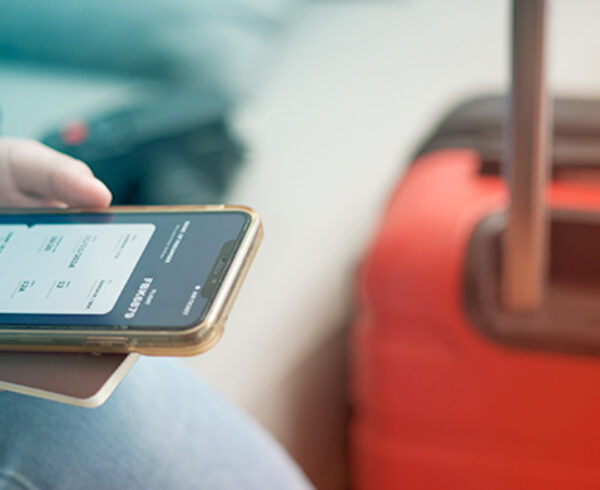Hotel room rates are not always intuitive. Though demand does affect hotel pricing, don’t expect a dramatic decrease in rates during the coronavirus pandemic.
Worldwide, hotels are shifting to what is the “new normal” of living and traveling during a pandemic. Travel Management Companies (like JTB Business Travel) work with Travel Managers to ensure that Travelers get the best return on investment for hotel stays, while still prioritizing safety and comfort. Hotel demand has dropped dramatically, but prices have not dropped as much as many had expected. However, Travelers can expect more perks like flexible cancellation policies and all-inclusive packages, for the same rates as before.
In order to understand how to get the best value for your Business Travelers, it’s important to understand how hotels determine their rates.
How Hotels Determine Rates
Forecasting
Hotels often set their pricing based on “forecasting”. This means that their rates correspond to anticipated demand. Hotels will either raise prices because of high demand, meaning they can get more money out of Travelers, or to make up lost revenue due to a lack of demand. During busier times with high demand, hotels may max out the number of nights travelers can stay. Conversely, hotels may offer discounts for booking multiple nights during slower times.
Pricing Per Segment
Segment pricing means hotels charging a flat fee for a certain number of rooms. According to this Revfine article, hotels will use this tactic when selling to Travel Management companies like JTB Business Travel. This can also include selling packages which include meals and/or activities, which drives the cost of each separate piece of the package down.
What to Consider When Booking
Cancellation Policies
Think twice before selecting the hotel that offers the seemingly best price. Oftentimes, more expensive hotel room rates will include more flexible cancellation policies. On the other hand, budget room rates will make up the lost revenue by not offering refunds.
Where to Book a Reservation
Booking directly with the hotel has its advantages and disadvantages. Though travel sites like Expedia and Booking.com may advertise discounted rates, they are actually the same as the hotel. Hotels and booking sites have rate parity agreements, which means the price must be the same anywhere. Booking sites are able to claim they have the “best price,” because it is the same price as the hotel.
A great way to get value for your Business Travelers is for them to become hotel loyalty members to chains that cater to business travelers such as Marriott or Hyatt. Expect hotels to promote loyalty programs for Travel Managers right now, especially given the pandemic. This is the best way to save money on future bookings and ensure a more comfortable and flexible stay for your Business Travelers.
For the best of both worlds, booking with a Travel Management Company is a wonderful option. Travelers get the rates and added services only a TMC can offer. In addition, Travelers are covered in case of an emergency with services such as waivers and unused ticket tracking or trip disruption assistance. In an era where uncertainty is expected, this is a crucial way to keep Travelers safe and traveling with confidence.
How COVID-19 May Affect Hotel Room Rates
It’s imperative for hotels to respond to this pandemic in a way Travelers and their Travel Managers deem appropriate, in order to make up for lost demand. Travelers are expecting increased safety precautions and flexible cancellation policies when booking a hotel. Furthermore, Business Travelers are paving the way for staying in hotels during a pandemic. These factors all contribute to hotel room rates during COVID-19.
Regional Differences
In the Asia-Pacific Region, prices have been much more likely to stay constant. According to this Skift article, hotels in this region have been much more likely to offer vouchers for future stays or all-inclusive packages at a discounted rate, as opposed to dramatically slashing the prices of rooms directly. This is a way to encourage Travelers to expect more value for the same prices as before, without losing revenue.
Meanwhile, hotels in Western regions like Europe and the United States have been more likely to cut the rates of rooms. However, this has been shown to negatively affect business once demand returns.
Prices May Not be as Low as Expected
Hotels who choose to slash their rates in order to increase their demand may see booking initially increase. However, these businesses are often the slowest to recover once demand increases (source). Travel Management companies are not likely to accept price hikes, and will gravitate towards hotels who have kept consistent rates.
Forecasting Changes
Instead of creating a price forecast based on demand from the previous year, hotels will likely set their rate based on previous weeks and months. Businesses are pivoting to adapt their models to fit the Business Travel needs of today.
Cancellation Policies
Though rates may not be dropping as substantially as some may have expected, an increase in flexible cancellation policies can be anticipated. Hotels will likely be eager to offer more amenities and flexible booking options. This is a way to save revenue and encourage comfortable Business Travel while avoiding cutting hotel room rates.
JTB Business Travel Prioritizes Your Safety and Comfort
Business Travelers are booking flights and hotel rooms before leisure travelers. At JTB Business Travel, our priority is ensuring Travel Managers can provide their Travelers with the safest and most comfortable travel experience possible. We assure our clients get the best return for their investment for flights, hotels, rental cars, and other expenses.
Contact us today about hotel safety and comfort, and making the most of your Business Travel.














Leave a Comment